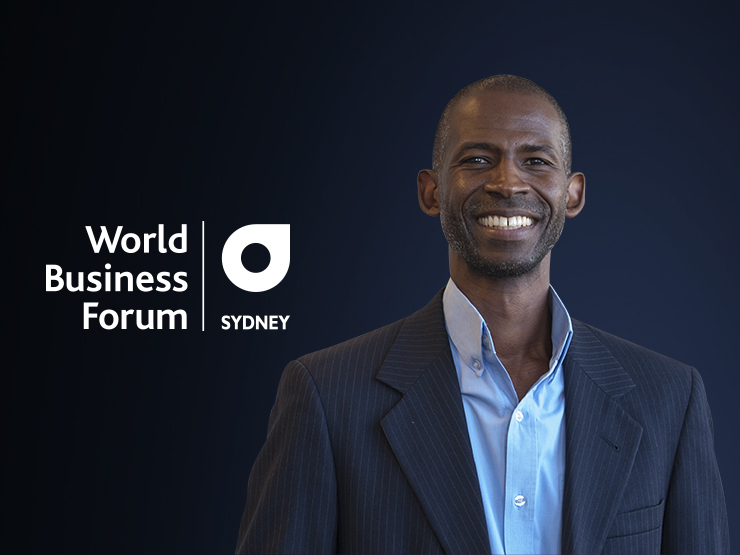Hear NAB’s senior expert panellists discuss a range of topics to provide key insights to help you and your business prepare for the current property market climate.

Disruption is impacting both businesses and communities. But there are greater opportunities for business to solve for both. Professor Ian Williamson of Melbourne Business School shares his insights.

Disruption means relevance is getting harder and harder for businesses. While many business leaders are aware of technology, customer and demographic issues, few are focused on how social challenges are a disruptor and an opportunity. Professor Ian Williamson of Melbourne Business School explains how social issues can shape strategy and performance.
Disruption is a shift in the external environment that has the potential to render existing organisational strategies ineffective or irrelevant going forward.
It is not that they are incompetent; it is that what they do is less relevant for a broader audience. These changes include:
But social challenges represent as much if not more of a disrupting factor than these others.
The emphasis on disruption is justified. We think about what that might mean for organisations but if you think about it at a more macro level, the volatility is amazing.
The membership of the S&P 500 churn shows how hard it is to maintain high levels of relevance over time. In the 60s you cold expect to be in the S&P500 for 30 years. In the 90s 20 years; by 2026 it will be 14 years.
There are many methods to respond to disruption, including competitive actions – initiatives to improve or defend a competitive position. You might launch a new product, engage in a price war or a legal challenge.
But the businesses we lead are not embedded in an industry but within a community. Major disruptions for the community shape how far your organisation will go. Social issues impact economic activity.
For example, in 2009 some organisations went to South Africa to check out opportunities. We met with different companies to talk about key issues in managing the workforce. They shared the most important policy they had to set up was their HIV/policy because at that time they were estimated that 5.7 million in Africa lived with HIV/AIDS. 23% of all skilled labour was affected. 13% of highly skilled labour – consultants, accountants and lawyers – were affected. Think about the impact on succession planning and absenteeism if 20% of your workforce has HIV? Absenteeism?
Leaders need to consider the actions they need to take around this too. It’s different to doing good and being a good citizen – it is about survival and relevance. When you think about evaluating senior leaders you should also think about how motivated, understanding they are about social issues because it will impact your business.
Awareness is not just information; it has understanding, internalization and acceptance associated with it. For it to be useful you cannot ignore or discount it. This happens with social issues – we resist the acceptance of information, or we look to do the bare minimum. Some organisations set aside funds for the community – but it’s still not really about them. Others see a social issue and link it to their organisation and performance social issues impact strategy and the strategy then is about solving the problem; the bigger the problem you solve the more money you make.
Ask yourself:
Awareness leads to action when leaders accurately understand the value actions can create.
In Australia social issues exist around an ageing workforce, Millennials, gender, disability and indigenous Australians. The decisions organisations make about these social issues have huge implications for outcomes – most notably innovation.
Diversity has a huge impact on innovation. Diverse workforces are better at invention, idea creation and idea generation. They are more creative, they generate more options and can do problem solving in a more rigorous way. They are also better at harnessing ideas to convert them into outcomes – they can give lower costs, deliver higher service and positive outcomes.
Ask yourself:
How do social issues impact your forms business processes?
How can I address social issues to create value for yourself and the communities you serve?
If we understand the value in addressing social issue the determining factor is whether we realize this potential is the skill set of our leaders. It is rare that any orgaisation has all the expertise to pull off innovation. Innovation is complementary – it’s about combining expertise. You need to develop multiple stakeholders you can partner with. Those that do this can generate consistent innovation over time. This applies to managing complex social issues. It is not likely you’ll have all the expertise to figure this out internally. You need to partner.
To become purpose built for a community, partner with someone who knows what the community needs.
Ask yourself:
What human and social capital do you need?
How can you form partnerships to develop this expertise?
© National Australia Bank Limited. ABN 12 004 044 937 AFSL and Australian Credit Licence 230686.